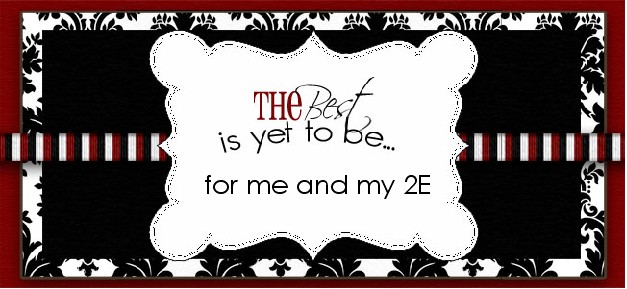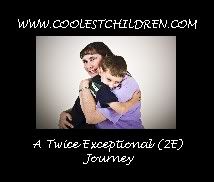When we took him in to check the prescription before getting glasses, the optometrist discovered he didn't really need glasses. He needed vision therapy. In his case, he has Convergence Insufficiency. When he looks at the tip of a pen held out in front of him and brings the pen towards his nose, we should see his eyes cross. She expected him to get within an inch of his nose. About 3-4 inches away, his eyes suddenly POP to looking straight forward instead of continuing to cross. Each repeated attempt finds the pen farther away. It's a muscle problem and we need to get the muscles improved. Our optometrist informed us that this is one of the best eye problems to have since it is curable. We don't correct the problem with glasses, we cure it with vision therapy.
If you find out your child needs vision therapy, we found http://www.covd.org/ has great information and a provider list.
Here's a list of signs and symptoms found on the website:
Physical signs or symptoms
- Frequent headaches or eye strain
- Blurring of distance or near vision, particularly after reading or other close work
- Avoidance of close work or other visually demanding tasks
- Poor judgment of depth
- Turning of an eye in or out, up or down
- Tendency to cover or close one eye, or favor the vision in one eye
- Double vision
- Poor hand-eye coordination
- Difficulty following a moving target (my addition: like a pen tip)
- Dizziness or motion sickness
Performance problems
- Poor reading comprehension
- Difficulty copying from one place to another
- Loss of place, repetition, and/or omission of words while reading
- Difficulty changing focus from distance to near and back
- Poor posture when reading or writing
- Poor handwriting
- Can respond orally but can't get the same information down on paper
- Letter and word reversals
- Difficulty judging sizes and shapes
A couple notes that we watched for after getting the initial diagnosis. We watched his eyes as he worked on a worksheet. He kept moving in his chair or getting closer/farther from the paper as he worked. He was adjusting his focal point to make up for the lack of muscular development in his eyes.
We take the oldest one in two weeks to confirm whether he needs therapy or not. I'll keep you posted.


.jpg)
No comments:
Post a Comment